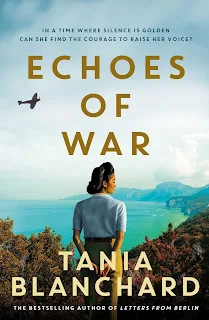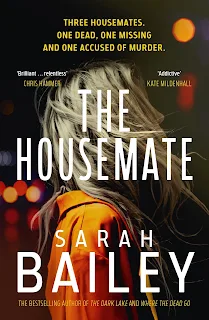* Copy courtesy of Pan Macmillan Australia *Devotion by Australian author Hannah Kent tells the story of a Lutheran family in Prussia who flee religious persecution in the early 1800s and set sail for the colony of South Australia. Our narrator Hanne is a nature lover and different from other girls her age. She's an oddball in her village who doesn't really fit in, until she meets Thea.
Several families from the town leave Prussia together and a large portion of the novel takes place on their hazardous and trying journey by sea to Australia. The writing is sublime and the conditions on board the ship felt so real that I began to feel a little claustrophobic just reading about their cramped living quarters and harsh conditions.
The foreign beauty of the landscape when they arrive in South Australia is powerful and moving, and I enjoyed reading this fictionalised settlement of what we now recognise as Hahndorf in the Adelaide Hills. The treatment of the original custodians of this land was respectful and well handled and the author provides more information in her Author's Note at the end.
Devotion is a slow moving character study about love and grief and I saw many parallels with
Hamnet by Maggie O'Farrell. The writing is incredibly evocative and I often had to pause to enjoy the prose on the page. The title of this historical fiction novel is apt, as it's about an individual's right to worship, pray and embrace their own beliefs free from judgement and harm. But it's also about Hanne's devotion to nature, her twin brother and her friend Thea.
I adored
Burial Rites and thoroughly enjoyed
The Good People, but here in
Devotion, Hannah Kent does something a little different. While
The Good People contained Gaelic superstitions and folklore,
Devotion dips more than a toe into the supernatural realm around halfway through the book. This unexpected shift will be met with surprise by many readers and I suspect some won't enjoy the change in direction. I willingly went with it, however my favourite part of the novel by far was the beginning, prior to the journey to Australia. The daily lives of those in the village of Kay put me in mind of several novels I've enjoyed recently.
Beautifully written,
Devotion is about love and yearning, the uncertainty of youth and the hardships of the period. Overall, it was an emotionally heavy book to read, but so intricately lyrical at times I felt as though I was intruding on Hanne's private and inner most thoughts. It also made me wonder whether Kent drew on her own love story in order to create this fictional relationship so convincingly and so heartbreakingly.
Devotion is the third novel by Hannah Kent and this talented Australian writer has now become an 'auto read' author for me, which is rare. Highly recommended for historical fiction readers who have the time and patience to slow down and enjoy a character study about love and devotion.










































